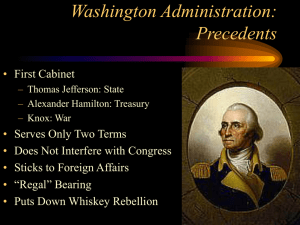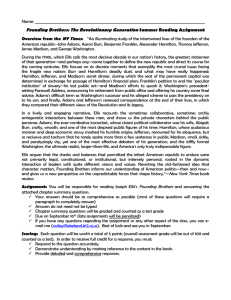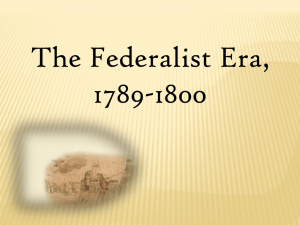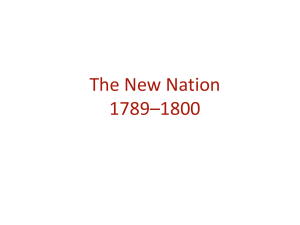Questions for The Farewell
advertisement
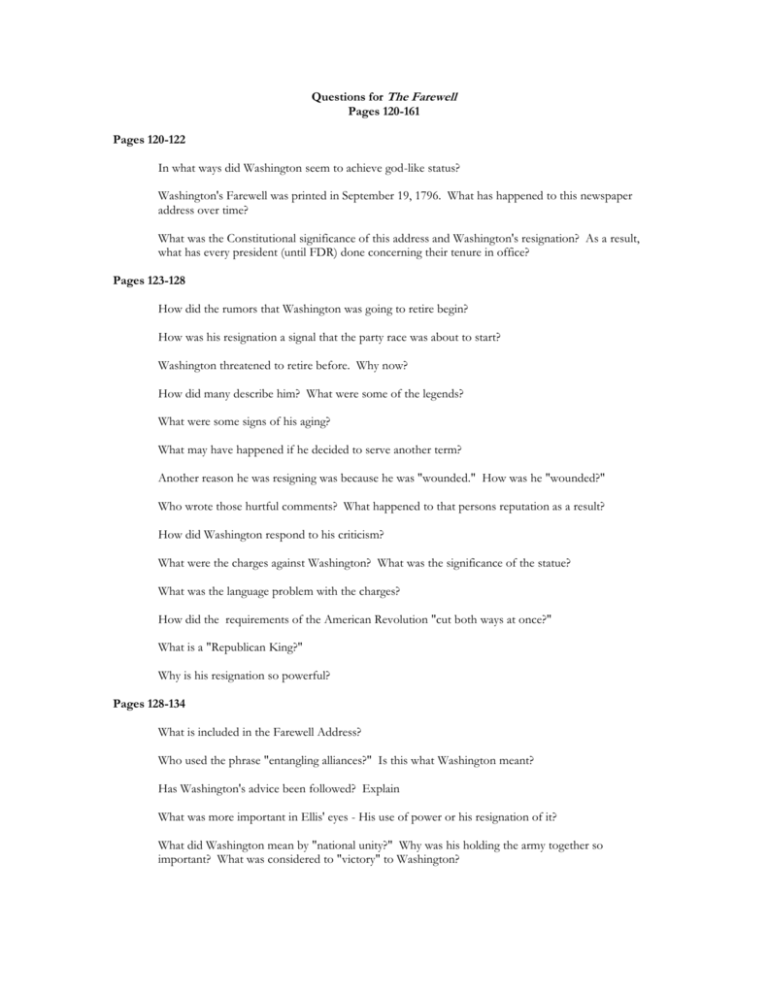
Questions for The Farewell Pages 120-161 Pages 120-122 In what ways did Washington seem to achieve god-like status? Washington's Farewell was printed in September 19, 1796. What has happened to this newspaper address over time? What was the Constitutional significance of this address and Washington's resignation? As a result, what has every president (until FDR) done concerning their tenure in office? Pages 123-128 How did the rumors that Washington was going to retire begin? How was his resignation a signal that the party race was about to start? Washington threatened to retire before. Why now? How did many describe him? What were some of the legends? What were some signs of his aging? What may have happened if he decided to serve another term? Another reason he was resigning was because he was "wounded." How was he "wounded?" Who wrote those hurtful comments? What happened to that persons reputation as a result? How did Washington respond to his criticism? What were the charges against Washington? What was the significance of the statue? What was the language problem with the charges? How did the requirements of the American Revolution "cut both ways at once?" What is a "Republican King?" Why is his resignation so powerful? Pages 128-134 What is included in the Farewell Address? Who used the phrase "entangling alliances?" Is this what Washington meant? Has Washington's advice been followed? Explain What was more important in Ellis' eyes - His use of power or his resignation of it? What did Washington mean by "national unity?" Why was his holding the army together so important? What was considered to "victory" to Washington? On what did Washington base his view of independence? Was he a realist or a dreamer? Give 2 examples What does Washington predict in his Circular Letter of 1783? Where did Washington think America's future lie? Pages 134-139 What was Washington's response to the conflict between England and France? When did he feel the US would be ready to fight for a "just cause?" What conflict ca,me roughly about that time? What was the Jay Treaty? Who was "favored" in the Treaty? How do historians view the Treaty? What was the public's response? What "constitutional crisis" did the Jay Treaty present? What was the Madison / Jefferson v. Washington view of the Treaty making process? What was the result when Madison tried to debate the Treaty in the House? Pages 139-148 What was Jefferson's criticism of Washington? What was Jefferson's vision of America? Who was the ultimate villain in Jefferson's world? Why? Why incident in PA (explain the incident) caused Jefferson to shift his opinion of Washington? What do Jefferson's letters reveal about his view of Washington's state of mind and control over the government? How do Jefferson and Washington differ on: The effects of the American Revolution? The French Revolution? England? What did Jefferson tell Washington about all the gossip? Was it true according to Ellis? What was Washington's response? What is significant about the Philip Mazzei Letter? What does the split between Washington and Jefferson really symbolize? What are the sides? What was the Washington v. Jefferson view of the government's role in: The Whiskey Rebellion The Jay Treaty How does James Monroe contribute to the pro-Jefferson side? How was Edmund Randolph an innocent victim in the Jefferson (Republican) v. Washington (Federalist) dispute? What 3 things did Washington NEED to address in his Farewell? Pages 148-153 Who do most historians say wrote the Farewell? Who does Ellis say wrote the Farewell? In 1792 - Why did Washington approach Madison? What suggestions did Madison make? In 1796 - What is ironic about Washington keeping the 1st paragraph of Madison's draft? What did many critics suggest was the real reason washington was resigning? Who wrote the second section of the 1st draft? Whose ideas? What did Washington insist Hamilton NOT include? How did Hamilton change Washington's "Mat Draft?" Why? Pages 153-159 What did Washington want to insert in the Farewell Address that Hamilton wanted to leave out? How did Hamilton phrase it? How is the Farewell Address "great prophecy?" How did Washington leave the nation? (economy, Indian relations, relations with the British...) Did Washington envision the country growing? How do you know? Give examples? Who did Washington "address" in his Farewell? Did he mention slavery in his address? What did this approach suggest about his views? What are Washington's views on slaves as future citizens of the US as Ellis outlines them? What about Native Americans? What was his solution to Native Americans and the population moving westward? What 2 points are clear in Washington's advice to the Cherokees? Pages 159-161 What was the reaction to the address? Why were his last 2 years in Mt. Vernon, VA. bittersweet? What happened on December 14, 1799? Why did Washington want to wait 3 days after he died to be buried? After reading this chapter: Identify a Vital Theme for this Chapter. Identify 2 or more Habits of Mind Ellis used in writing this chapter – briefly explain where he used each Habit



